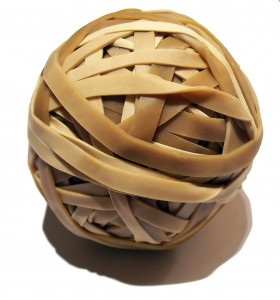Resilience – what kind of bouncy ball are you?

For others it’s a case of
Resilience is not just necessary in the jobs that we do but also when we face life-disrupting events such as illnesses, family traumas, divorce, financial difficulties and moving home.
Invariably problems and disease come from our personal subjective reactions to what is stressing us out. The “mission if you choose to accept” is to convert these threats in to a way that energises us positively.
However, he did discover that not all stress is bad for you! The good stress is called “eustress”. That’s the kind that thrills us and encourage us to focus on our successes and triumphs.
So the skill we need to develop is to manage our stress and not allow our circuits to become overloaded.
I have found that often when we do become stressed we cut out doing the things that we love because we feel guilty or think we just don’t have the time any more. Or put simply we aren’t in the mood.
We do this because we think we need time to recover, to get our heads in the right place. When, in fact, doing some of the good stuff aids recover and boosts our resilience.
So let’s have a think about what to do to maximize your resilience and lower your distress.
If you take just a few moments to focus on your breathe you’ll probably find that your breath is shallow and coming from the upper part of your chest rather than from your diaphragm. So have a go at just breathing deeper for 30 seconds to a minute twice a day and note how you feel afterwards.
- Excercise
This can be gentle – a short walk, taking the stairs rather than the lift or park the car a little further away from where you are going to give you a walk.
- Nutrition & Supplements
Remember the old saying “garbage in – garbage out”. Choose to have one good nutritious and healthy meal a day and maybe get yourself checked to see if you need any vitamin supplements.
- Think Positively – one step at a time
Be aware of your own self talk, write it down and think of the positive opposite. Give yourself a pat on the back – often!
- Humour
Happy emotions release endorphins and activate the healing process and relieves stress. So watch your favorite comedy or meet up with friends that make you laugh.